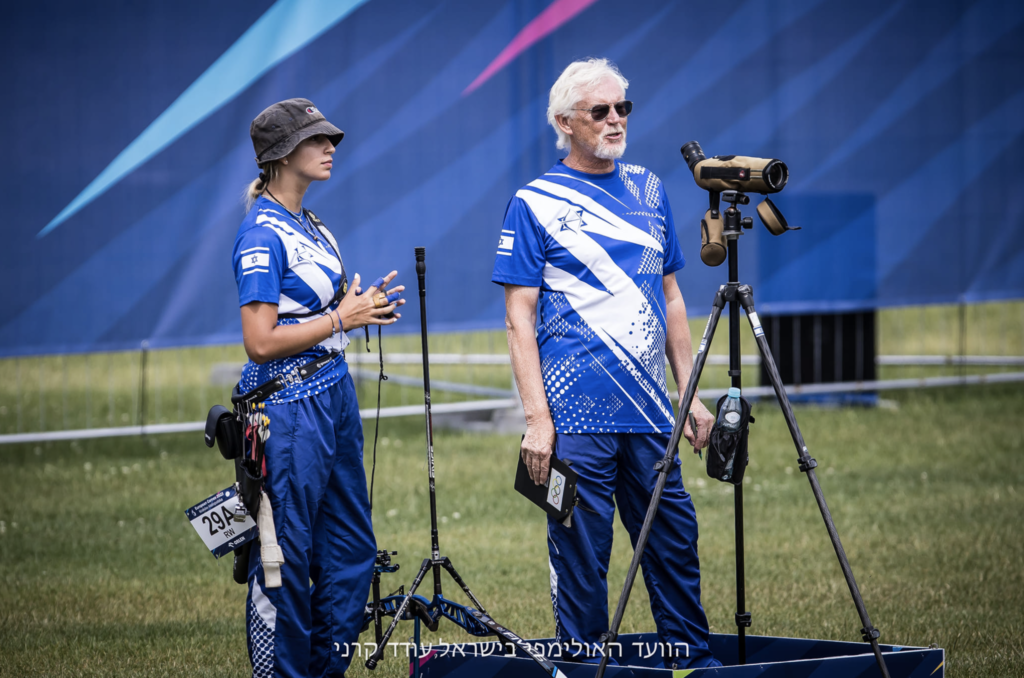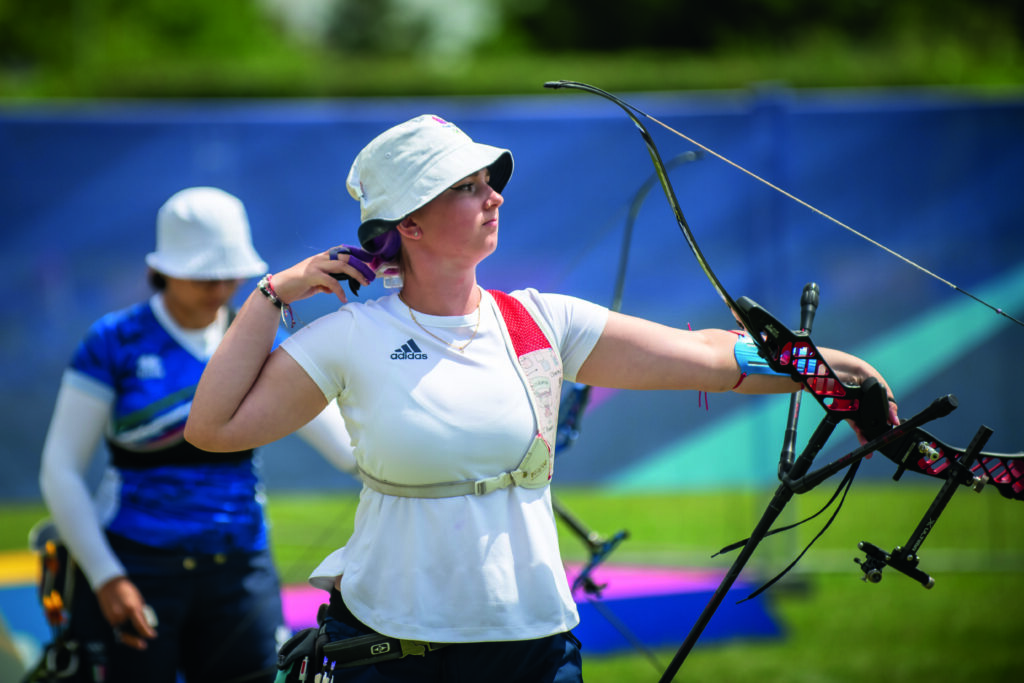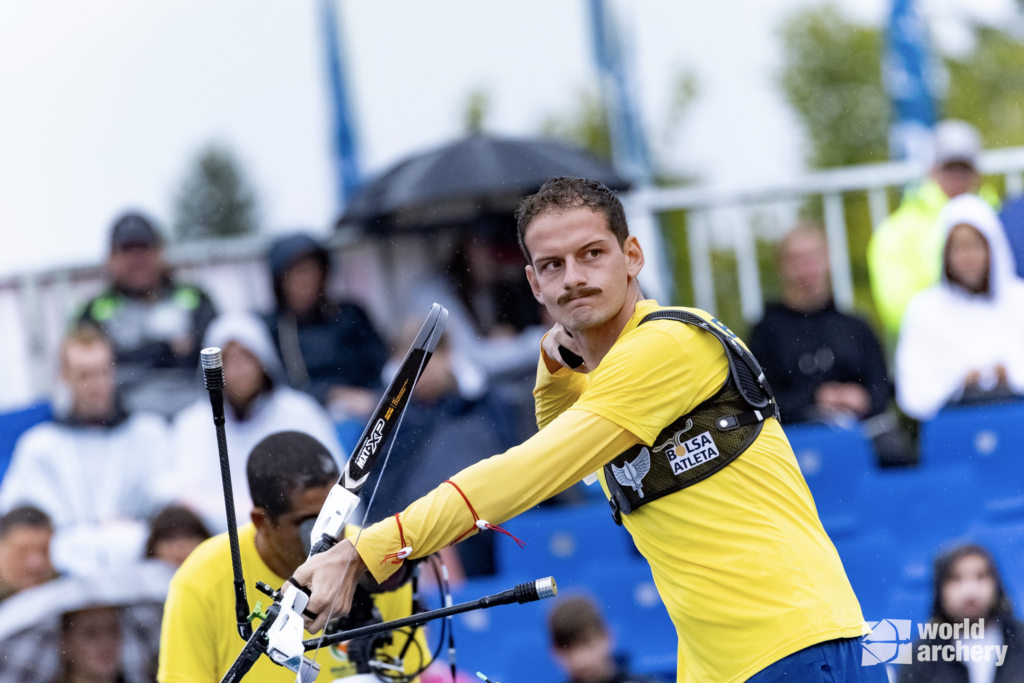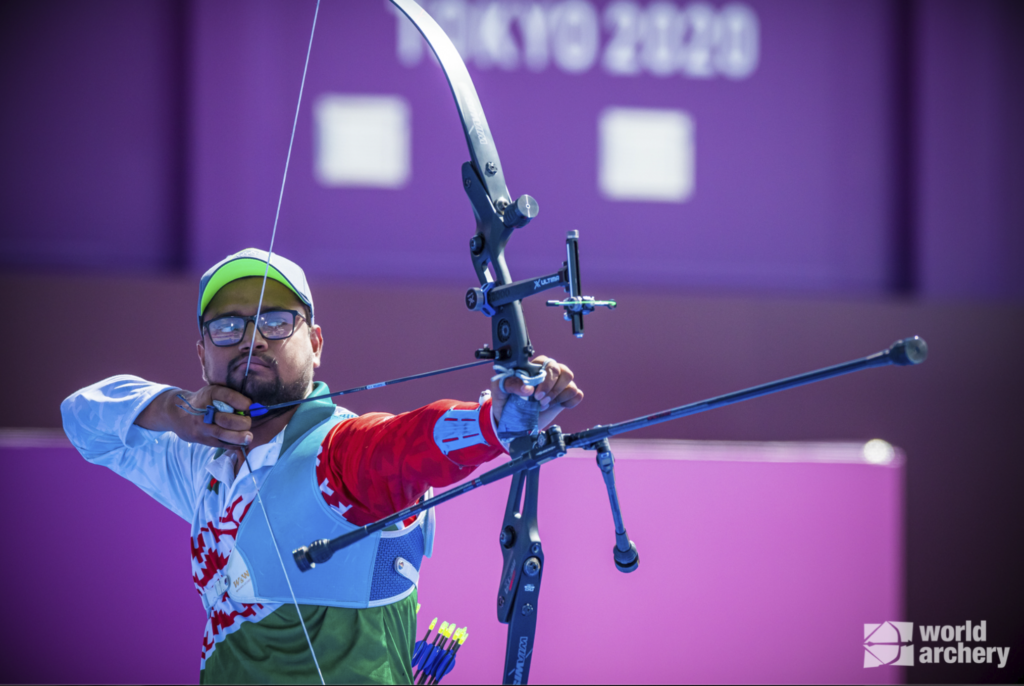Bow continues the conversation with WA’s Coach of the Year

Why do some talented archers fail?
Lack of hard work, fear of failure, pressure of life. Talent is something you brought with you when you came into the sport, and the good thing with archery is that you can learn everything, piece by piece, like a jigsaw. Hard work will always win. But, in a way, hard work is the talent. Sometimes, just hard work does not work and there has got to be some talent; but you will never fulfil your potential without putting the hard work behind it. All best archers in the world are hard workers.
Is there anything besides hard work that these archers have in common?
They are very driven to be good. They want to be good. Most of the time they will not accept anything that is not a ten. And, sometimes, when they do hit a ten, they are still not satisfied with ‘just shooting a ten’ – it is more about attention to detail. Some get beaten all the time, some make mistakes, some get anxious, but they will find their way through it because they have that drive, that resilience. For many, endless losing at the start is what makes them so resilient later in their careers. In fact, most people could be much better than they are if they hadn’t given up too easy or too early. That is one of the key dilemmas, how do we keep people in the sport long enough and have them work hard enough to reach their full potential? You are training towards that one point in your life where you shoot your lifetime personal best, but you don’t know when it will be. And, sometimes, you don’t know you have done it. It is a journey, and you don’t know where the end is. But you do see many archers, like Oh Jin Hyek in his forties, still shooting great scores. Professional archers have long careers, there is no reason for them to stop and get a proper job. And who knows where he will stop?
Are there currently any archers on the scene whose development you oversaw?
I was very fortunate to have been in Brazil, where I have been a national coach for just over two years in 2013. Marcus D’Almeida was a young 15-year-old, he had already been on the squad when I arrived. I oversaw his development for about two years, and by the end he was already competitive as a senior archer.
As part of the GB Pathway squads, Penny Healey came up with Olympic ambitions, but she was not a ‘finished’ archer by any means. And I was lucky to work with Penny for three years. I have not worked with Marcus directly since I left Brazil. Penny, of course, I see her a lot around in international competitions and keep in touch to ensure she keeps improving. It is always a great privilege to be working with people like that. Then there is Ruman Shana in Bangladesh. He won a World championship medal in 2019. Again, it is that critical age, 15-17, when they have already started in the sport, and you teach them how to be a real competitor. After all that work, some years later, their progression is continued, and they win medals. It’s nice to see. I think the big part for me is being involved in that critical 15-18 age range, when they are really learning to be good archers, before the bad habits set in.

Do you do anything different when working with a talented archer?
Yes. The big part of what I do is observation; it involves many, many hours, trying to work out how and where they can go as an archer, because they have all learned as a beginner, and they have all worked with some coaches; that means that they have already got existing techniques. Often, some of it will be ok, but some of it may be limiting their performance. I try to identify what is limiting their performance. Everybody from beginner to an Olympian can shoot a ten. What the individual doesn’t know is how to stop 9s, 8.s, 7s and 6s, and the misses. The higher overall standard you achieve, the higher arrow becomes the bad arrow. But, even when you get to a high international level ‘good’, you are still ‘leaking’ 8s, 7s and 6s. So, what I look to see is what makes them shoot those bad arrows; they clearly know what it feels like to hit a ten, yet they still allow for other numbers to happen. Is it their mental game? Their physical fitness? Is it their technique or their equipment? So, it is about making a big, long list with everything that may be limiting an archer and going through it one-by-one, ticking off every limitation, until they are left with 10s and 9s. It takes a long time and a lot of work.
What are some of the limitations you come across more often?
One of the biggest limitations is bow fitness. It is very difficult to be a competitor doing good technical process if you are not fit enough to control your bow. And, internationally, there is an accepted range of bow weight that is considered competitive. For woman’s division it will be from 39lbs to mid 40ies – any less, and if you are shooting a lighter bow, you will be compromised in more adverse weather conditions. It has been proven that the heavier the bow, the more accuracy it can potentially achieve; so, the body has to cope with that. The men are shooting 47, 48lbs, all the way up to 68lbs. The demands on the body are incredible; you have to able to shoot anywhere between 250 to 400 hundred plus arrows under those loads to a good standard. My archers need to be fit enough and have to be able to shoot a certain number of arrows without injuring themselves, or without fatiguing themselves too much. A technical process must be learned and must be repeatable; it has to match their personality; not everybody can do the same kind of technique. You see a Korean kind of technique, or KiSeek Lee kind of technique, or a mixture, throughout Europe, for example. It is about trying to figure out what they can and can’t do based on what they have picked up and learned before. Then you go one-by-one, looking for the breakdown points, building a robust technique that can stand up to individual’s perceived pressure. You’ve got good equipment, competitive bow weight, good process, you are bow fit, and the biggest potential limitation factor is the mental game. Archers worry about scores, about the outcome, worry about messing up, so we must find the way around that.


Why do some high-level archers focus so much on the outcome?
For many there is a need to win a medal. And because you need to shoot a lot of tens and nines to get the medal, you can’t get away from the outcome; and that creates an incredible amount of pressure. For compound, you have to shoot tens, otherwise you are going to lose. What we need to do as coaches is take the pressure away from the thought of missing the middle, help them get rid of that fear. If we can persuade the archer to do good process, work with their determination and expectation to hit the middle, then that there is how you create a ‘ten’. If an archer is shooting and trying ‘not to hit a nine’, then that is a totally different mentality, and we need to get away from that. There is a desire for medals from the Olympic Federation, national federations, the archer, the parents, the club mates, in other words, you are expected to shoot good scores and are expected to win, on many levels. It’s very hard for the archer to cope with that; some cope with it very well, some don’t. And, of course, we have many World number ones who worry about losing World number one. Naturally they want to stay there and many of them will be shooting with that fear of losing their position: “What if I don’t shoot good today? I’m going to lose”. All of this must be managed by and supported with appropriate help from coaches and psychologists, the whole support team. Everybody is a different individual, and you have to find a way to deal with that pressure; some will come into sport with the necessary skills, some will learn, some will require a lot of persuasion.
Do you feel that a coach plays a major role in helping achieve that mentality?
Yes, most definitely. Most of my coaching is in that; I teach them how to get bow fit, how to work on their technical side of training, but most of it is competition training and it is psychological in nature; it is easy to say the right thing at the wrong time, and then it doesn’t work. You really have to say the right thing at the right time, and that’s a difficult skill for a coach to learn. Coaches can be very productive and very destructive. It is very important for a coach to work closely with a psychologist. Psychologists do some very good one-to-one work with the archers, but I prefer they work through the coach too, because so much of the psychological work goes through the coach. Often when I find that there are blocks to archer’s performance, I will seek the psychologist’s advice to try and solve it – it is teamwork.
Do you think a coach needs to have a talent?
I was a competitor as an archer and I am a competitor as a coach, I want my archers to win, and a few of my former competitors are now coaches; I still want to beat them. So, the talent I brought with me as a competitor, and the way I learned my archery, gave me a steppingstone to be a reasonably good coach. The biggest learning happened when I began coaching; it is endless research, endless talking to other coaches, looking for different or new ways of doing things. The learning never stops. But there are coaches out there that have never been archers, and they are really good coaches, and they get good results. But looking at top coaches around the world, many of them were good international competitors themselves.
Is there a more ‘important’ coach in archer’s journey?
I always say this at any coach training event, the most important coach in archer’s development is the beginner coach. They are the ones that will give the good, sound basic skill-base that won’t limit the archer in the future. Most of my coaching has been about fixing the poor learning acquired in early development. If the beginner coach gives a good foundation, then they won’t limit the archer’s potential.
Would you say that current coach learning infrastructures are limited?
Most definitely, yes. Look at the coach training around the world. In GB you have got levels 1, 2, 3, and every country has their own levels; the learning is limited to what you learn at the course; can you really put what you’ve learned into practice? If you look at level 3 coaches, they still don’t know everything required to take their archer to be a winning Olympian. I really enjoyed the coach learning in South America because it was seminar-based. Bringing in expert coaches, expert archers, and in a week’s course, you would learn everything you would need to know as a coach to take the archer to be Olympic level. It is a massive amount of learning, but, as a beginner coach you get a good idea of what “Olympic-good” is. I guess, my major criticism of archers, coaches, officials, is that there is no secret information out there, it’s everywhere. There are great books, seminars, online resources, social media, endless information. If you do your research, all the tools are there. But there is stuff out there that is not good enough, so part of my job is to also guide the archers to what is good information.
If you were to give a most useful piece of advice to a beginner coach, what would it be?
I would love to see the archer to have more freedom to learn the basics. I would like the beginner coach to teach the archer to focus on making good process all the time, teach them movement; teach them the right posture, the ability to open into a good alignment, to have an effective anchor, a continuous movement a good follow-though. A simple well-rounded process, rather than pushing them into competitions too early. It is so common for people that go to a club are pushed into competition a week later, when they haven’t learned all the skills. When you go into a competition and you are not ready, you get disappointed with the score, you will start getting hang-ups, you’ll likely get anxiety, get frustrated, and like with any bad habit, it is very difficult to get rid of. Poor technique is nobody’s fault and it’s everybody’s fault – in the West the culture is not to learn good technique. It’s kind of OK, and we go to competitions, but at some point, when we want to be really good, go to big competitions, we have to fix it. And then you have to spend 6 months, or 12 months, or 2 years out of their archery life on fixing technique to shoot good scores; in other words, you are taking time away from them, and we have a limited time in this sport. If the good basics aren’t there, you are left with limitations, you are wasting everybody’s time. So, teach them good basics, it’s all in the manuals. There is a personal responsibility for the archers and the coaches to learn better.
If you were to guide a coach who wants to improve, how would you recommend they develop?
If there is a technical model in your country, learn it; but not all countries use one. Above all, you need to be a student of archery, study what the Koreans do, they have a formalised kind of technique, with a few variations of course. Study what the KiSik Lee is doing, he has a very stylised, effective process. It’s all there, you just have to learn it and you need to know it. When you look at the student in front of you, you need to think about what that person can do with their mindset and with their body, and you might need to use elements from different forms of archery. Look at what the Soviets did, look at what the Germans do, what the French do – it is all out there. All these processes have steps, and you might use some from one cycle, some from another, trying to match it to that person and their mindset. It is something I did with Penny Healy, I adjusted the process to her mentality to make her shoot more tens, because she was limited by what she was doing. So, a coach has to look at the archer and see what they can do to make them shoot better. Technique work is continual, it is about the long-term development, and short term-term scores are not import.
Lastly, how long does it take to develop a strong international level archery athlete?
International, Olympic level, you are looking at 7 to 10 years for recurve, for compound, 3 to 5 years. But there are exceptions, of course. It depends if they have any transferrable skills, how good they are at implementing things, how good they are at listening to their coach. It is a difficult sport, and we as coaches have to find the way to the archer; with some archers, you never find a way to get inside their heads. Not everyone is coachable, and not everyone will match.
It will certainly be an encouragement for many to train hard and invest in their development. Thank you very much, Richard!

